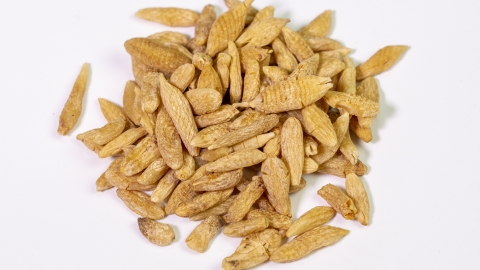Which herbs can be combined with food to promote saliva production and relieve thirst?
Commonly used herbs that can be combined with food to promote saliva production and relieve thirst include Ophiopogon Root (McDoor), Polygonatum (Yu Zhu), Adenophora Root (Sha Shen), Lily Bulb (Bai He), and Dendrobium (Shi Hu). The details are as follows:

1. Ophiopogon Root (McDoor): Slightly cold in nature, it can be cooked with foods such as snow pear and white fungus. Its property of moistening the lungs and promoting saliva production, combined with the nourishing texture of these ingredients, effectively alleviates dry throat and reduces thirst. It is suitable for consumption during autumn and winter seasons.
2. Polygonatum (Yu Zhu): Neutral in nature with a sweet taste, it is often stewed with ingredients such as pork ribs and Chinese yam. This enhances the soup's sweet flavor while leveraging Yu Zhu's ability to nourish yin and produce body fluids, helping to relieve thirst caused by internal heat. It is suitable for most people.
3. Adenophora Root (Sha Shen): Known for nourishing yin and clearing the lungs, it is commonly simmered with winter melon and duck meat. The resulting soup is refreshing and non-greasy. The saliva-producing effect of Sha Shen complements the hydrating properties of these ingredients, improving symptoms of dry mouth and thirst.
4. Lily Bulb (Bai He): Slightly cold in nature, it can be cooked with lotus seeds, mung beans, and other ingredients to make porridge or soup. Its properties of moistening the lungs, relieving cough, and alleviating dryness, when combined with heat-clearing ingredients, effectively relieve thirst caused by internal heat. It is especially suitable for consumption during summer.
5. Dendrobium (Shi Hu): Also slightly cold in nature, it is often stewed with lean meat and figs. Shi Hu's significant effect of nourishing yin and promoting body fluid production, when combined with these ingredients, not only enhances the nutritional value of the soup but also helps relieve thirst caused by insufficient body fluids.
When using these herbs in combination with food, attention should be paid to moderate dosages to avoid physical discomfort due to excessive use. Those with weak and cold spleen and stomach functions should cautiously use cold-natured herbs. If discomfort occurs after consumption, it is recommended to promptly consult a healthcare professional.







